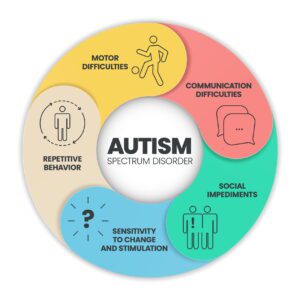Navigating through the maze of parenting questions and concerns becomes significantly more intricate when your child is diagnosed with autism spectrum disorder (ASD). One of the most profound worries parents often express is, “Will my child with autism ever speak?” While every child’s development and ASD are unique, early intervention and Applied Behavior Analysis (ABA) therapy can significantly enhance communication skills and improve your child’s quality of life.
Understanding Speech Development in Autism
It’s important to recognize that autism manifests in different ways for every individual. For some children with autism, speech development may follow a nontraditional path or be delayed. They might start speaking later than their neurotypical peers, or they might not speak at all. However, the absence of verbal communication doesn’t mean they can’t communicate or understand language. They might use alternative forms of communication such as sign language, picture exchange communication systems (PECS), or electronic communication aids.
The Power of Early Intervention
Research consistently demonstrates that early intervention can significantly impact a child’s development, particularly in communication and social interaction skills. Early intervention programs designed for children with autism aim to enhance various skills, including social, cognitive, communicative, and adaptive skills. These programs work best when they are tailored to a child’s individual needs and involve the family in the intervention process.
The earlier these programs start, the better, since the first few years of life are a critical period for brain development. Initiating interventions during this time can capitalize on the brain’s plasticity, leading to more significant developmental gains. The key is to observe your child’s behavior carefully and seek professional guidance as soon as possible if you notice any potential signs of ASD.
The Role of ABA Therapy
One of the most effective and evidence-based therapies for enhancing communication in children with autism is Applied Behavior Analysis (ABA) therapy. ABA is a scientifically validated approach that uses principles of learning and behavior to encourage positive behavior changes, including the development of speech and language skills. It’s often recommended as a key component of early intervention for children with autism.
ABA therapy begins with an assessment to determine your child’s strengths and areas of improvement. Based on these findings, therapists develop an individualized program that focuses on your child’s specific needs. They utilize positive reinforcement techniques to motivate your child to learn new skills, including verbal communication. Over time, this can lead to significant improvements in communication, social interactions, and other key areas of development.
ABA therapy is not only about teaching speech. It can also help children understand and use non-verbal communication cues, like eye contact, gestures, and facial expressions. Even if a child does not develop verbal speech, these skills are crucial for effective communication.
Every child’s journey with autism is unique.
Asking if a child with autism will ever speak is a deeply personal and complex question. While it’s true that not all children with autism will use verbal speech, that doesn’t limit their potential for meaningful communication or a fulfilling life. Through early intervention and ABA therapy, children can develop a range of communication skills and strategies to express their needs, wants, thoughts, and feelings.
Celebrate their progress, encourage their growth, and above all, remember that speech is only one form of communication. With patience, understanding, and the right support, your child can reach their fullest potential.
Learn More about Autism Treatment Options
For more information or a free consultation, contact us today. We offer specialized, evidence-based early intervention ABA therapy programs for children aged 18 months to 6 years old.




